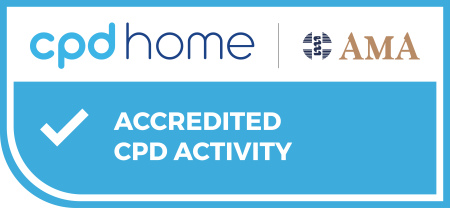The Skin Cancer Medicine Case Management course offers comprehensive guidance on managing a variety of skin cancers through detailed clinical case studies. Presented in three units, this program emphasises practical techniques, advanced decision-making, and best practices in skin cancer surgery.
Unit 1: Foundational Case Management and Techniques
This unit focuses on essential techniques and the "tricks of the trade" in skin cancer surgery:
- Common Techniques: Review methods such as elliptical excisions, punch biopsies, shave biopsies, and curettage with cautery
- Complex Scenarios: Learn to handle challenging lesions on sensitive areas like the nose, ears, and lower legs
- Grafting: Explore the use of halo and full-thickness grafts for difficult-to-close defects
- Suturing Skills: Master advanced suturing techniques, including vertical and horizontal mattress, pulley, and Mirini sutures, with specific guidance on working with fragile or “paper-thin” skin.
Unit 2: High-Risk Areas and Multimodal Approaches
Dive deeper into case studies involving high-risk areas and multimodal management strategies:
- Head and Neck Lesions: Address complex lesions requiring precise margins and cosmetic consideration
- Lower Leg Management: Manage lesions in the lower legs with techniques to minimise complications such as wound dehiscence
- Non-Surgical Options: Understand when to utilise non-surgical treatments like cryotherapy, topical therapies, and radiotherapy, especially for patients with contraindications to surgery.
Unit 3: Advanced Case Studies and Decision-Making
The final unit presents advanced case discussions to refine clinical judgment:
- Complex Lesion Management: Examine scenarios involving large, recurrent, or misdiagnosed lesions, and learn how to navigate complications
- Melanoma Margins: Understand the importance of achieving clear margins in melanoma excisions while preserving functionality and aesthetics
- Interdisciplinary Referrals: Learn when and how to refer cases to specialists for advanced reconstructions or additional care
- Post-Operative Care: Explore best practices for wound care, scar management, and patient education to optimise healing and outcomes.
With its evidence-based approach, practical demonstrations, and interactive discussions, this course prepares healthcare professionals to manage even the most challenging skin cancer cases with confidence and precision.
Learning Outcomes
- Judge which cases to refer to others and when to refer to them
- Plan surgical procedures in a simulated setting, including suturing techniques (simple interrupted, buried dermal, sliding dermal, vertical/horizontal mattress, Mirini sutures, pulley dermal sutures, half-buried horizontal mattress and continuous) and suturing on paper-thin skin, curettage and cautery, elliptical excisions, biopsies, lower leg grafts.
Details
Cost: $195
Suitable for: All degree qualified medical practitioners.
Study mode: 100% online
Disclaimer: Please note, once you click 'Register now' you will be leaving the AMA’s CPD Home website and entering a third-party education provider’s website. If you choose to register for this learning, you will need to provide some of your personal information directly to the third-party education provider. If you have any queries about how third-party education providers use, disclose or store your personal information you should consult their privacy policy.
Upon completion, your CPD activity record may take up to 4 weeks to be reflected on your CPD Home Dashboard.
